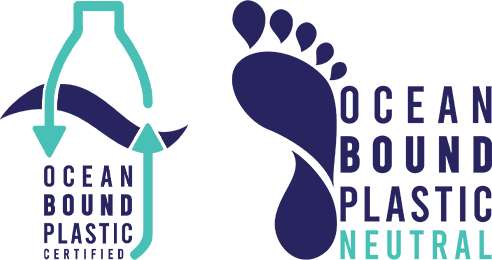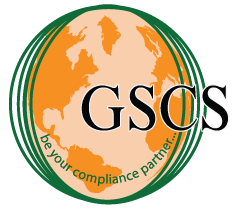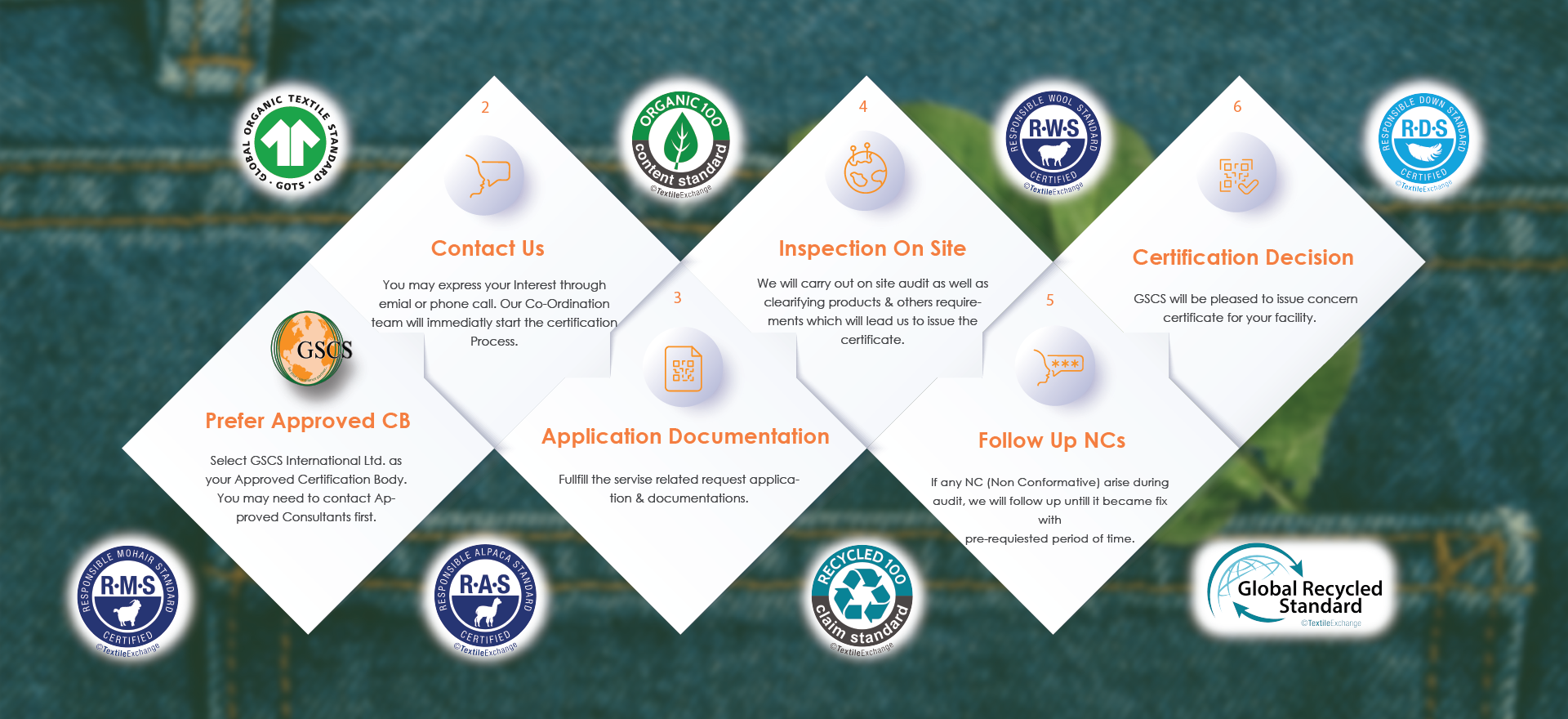
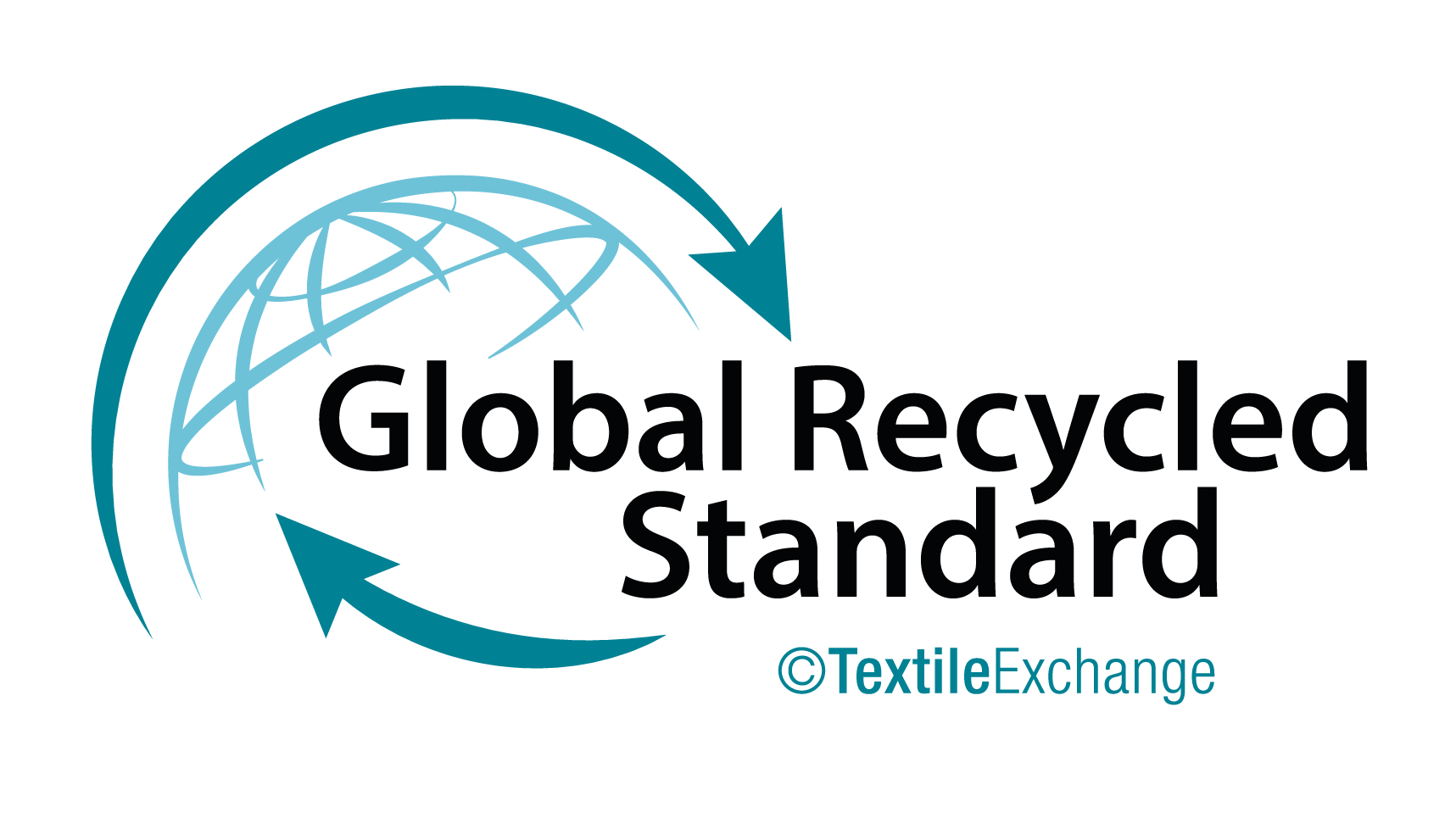
Global Recycled Standard (GRS)
The Global Recycled Standard (GRS) is an international, voluntary, full-product standard that sets requirements for third-party certification of Recycled Content, Chain of Custody, Social and Environmental Practices, and Chemical Restrictions.
Individual sites are certified by GSCS as an independent, third-party certification body using annual audits. GRS intends to track and trace recycled input material in the final product.
Recycled Claim Standard (RCS)
The Recycled Claim Standard (RCS) is an international, voluntary standard that sets requirements for third-party certification of Recycled input and chain of custody. The goal of the RCS is to increase the use of Recycled materials.
Individual sites are certified by independent, third-party certification bodies using annual audits. RCS intends to track and trace recycled input material in the final product.
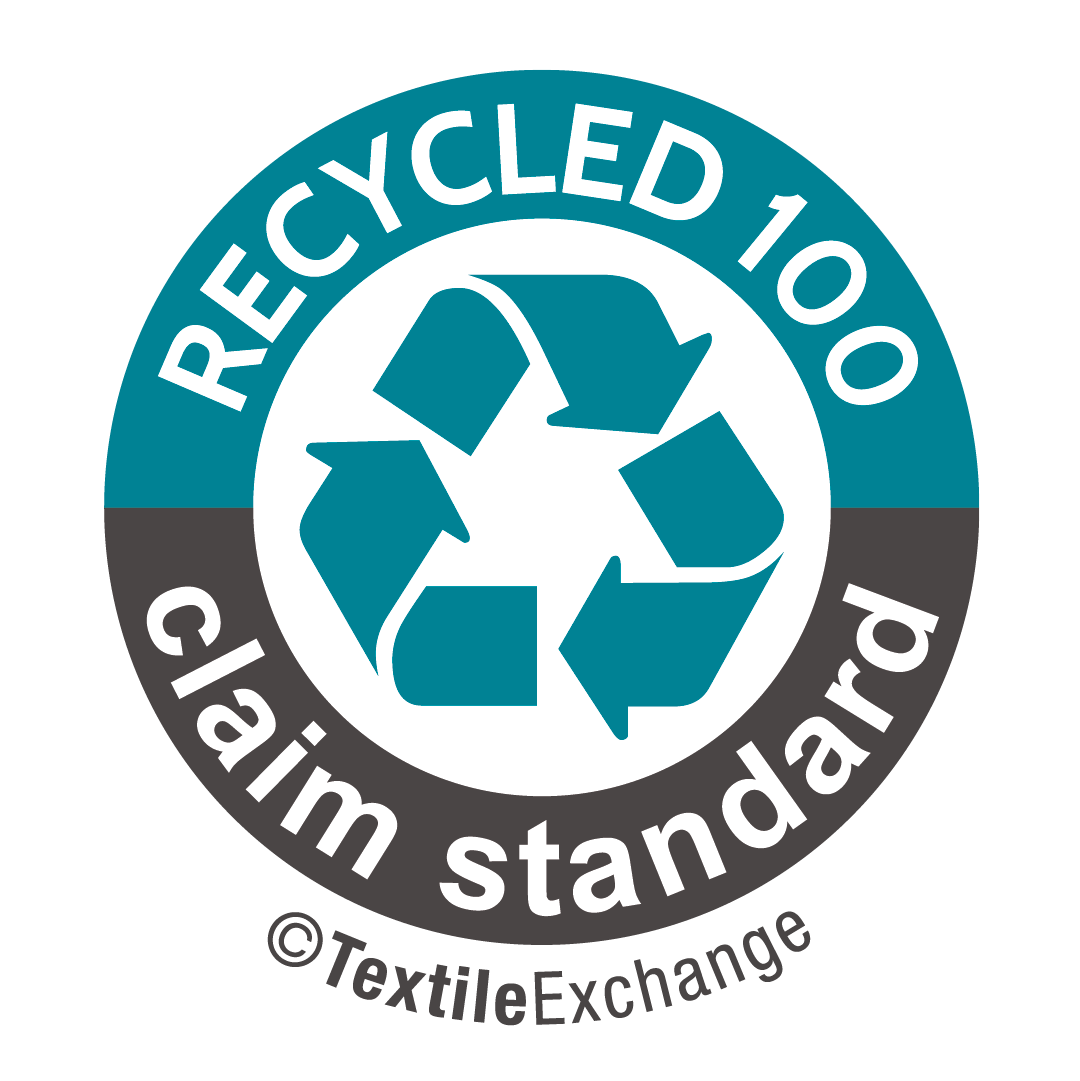
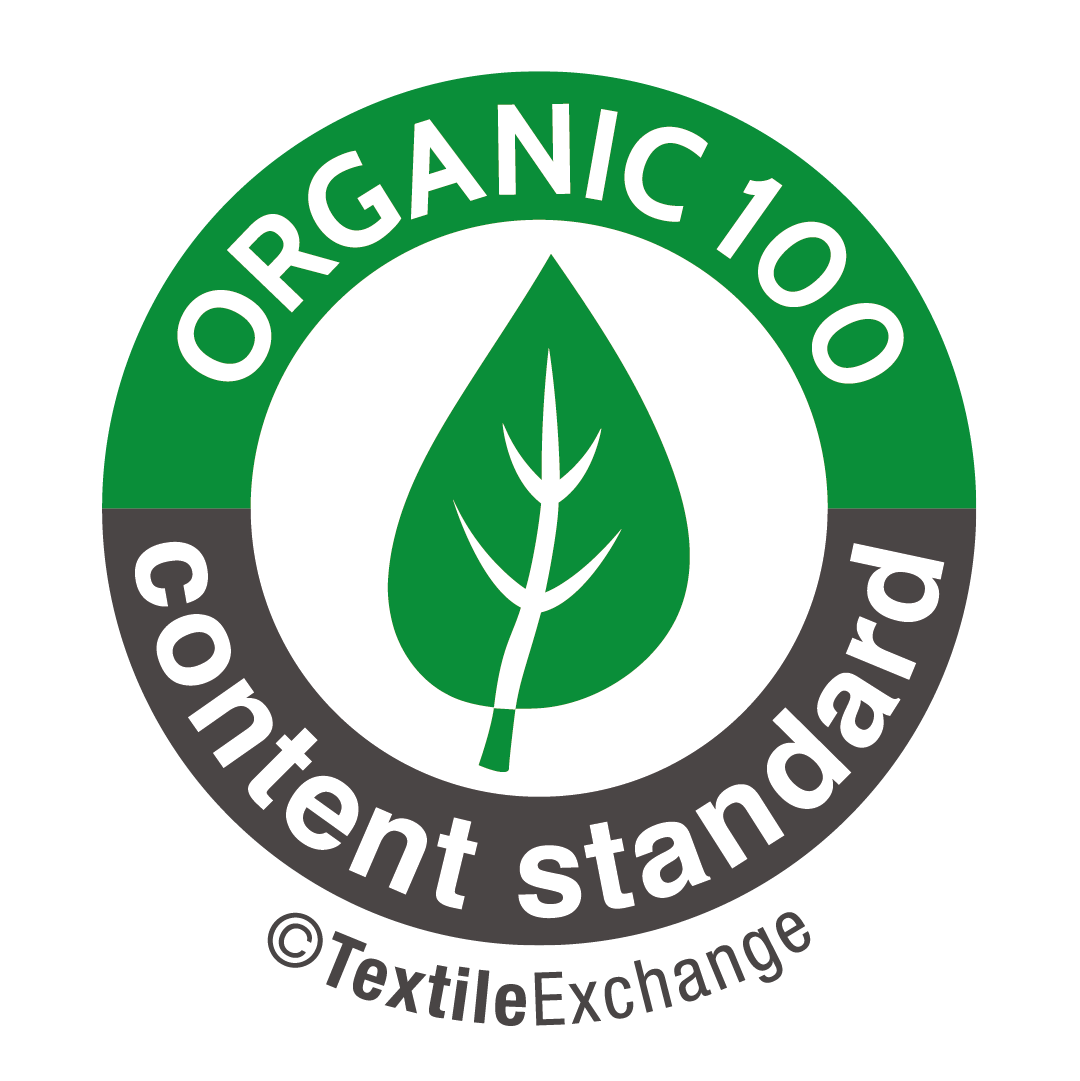
Organic Content Standard (OCS)
The Organic Content Standard (OCS) is an international, voluntary standard that provides "Chain of Custody verification" for materials originating on a farm certified to recognized national organic standards. The standard is used to verify organically grown raw materials from the farm to the final product.
Individual sites are certified by independent, third-party certification bodies using annual audits. Material is tracked from the farm to the final product using Transaction Certificates (TC).
Responsible Wool Standard (RWS)
The Responsible Wool Standard (RWS) is an international, voluntary standard that addresses animal welfare in sheep farms and the "Chain of Custody" of wool from certified farms to the final product.
Individual sites are certified by independent, third-party certification bodies using annual audits. Material is tracked from the farm to the final product using Transaction Certificates (TC).
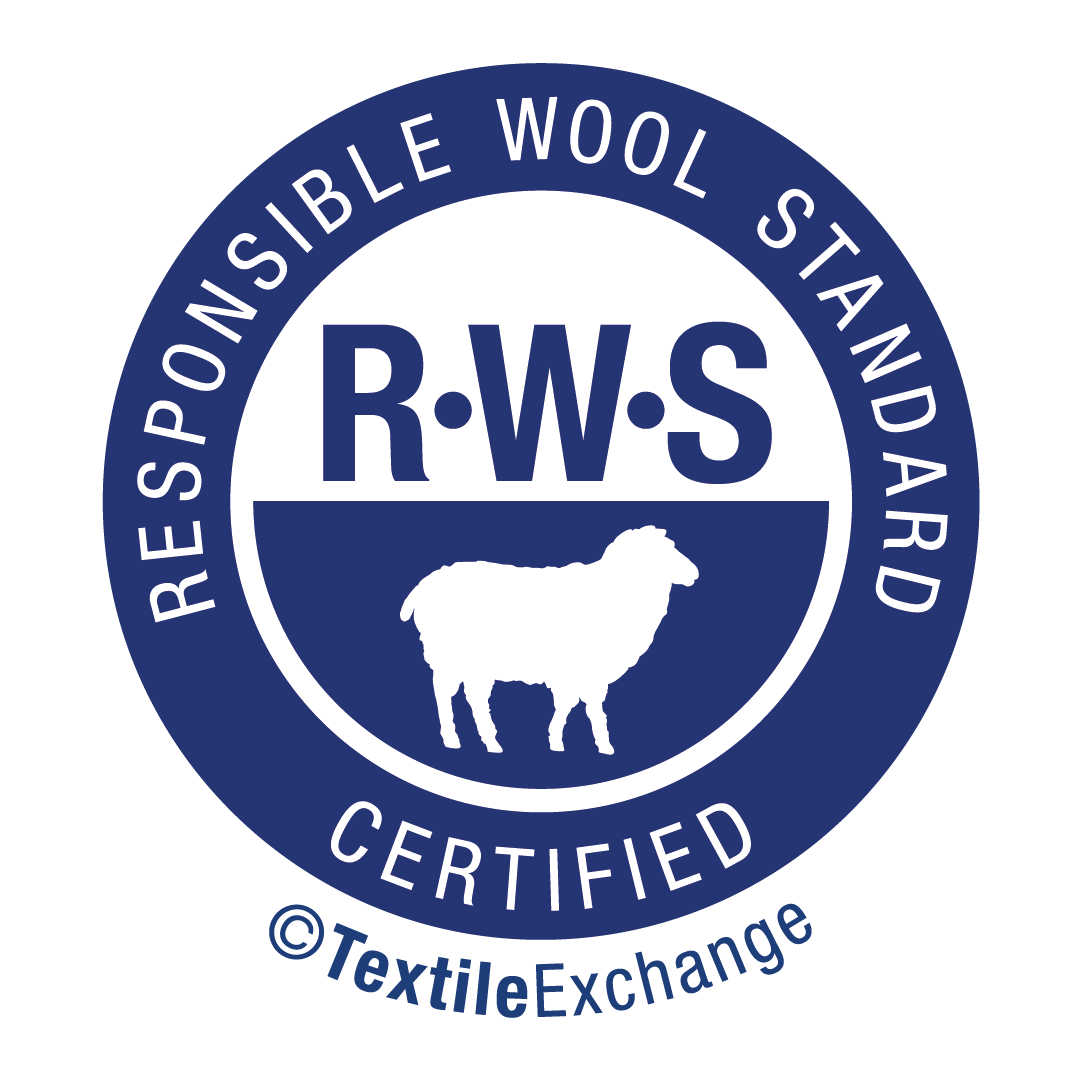
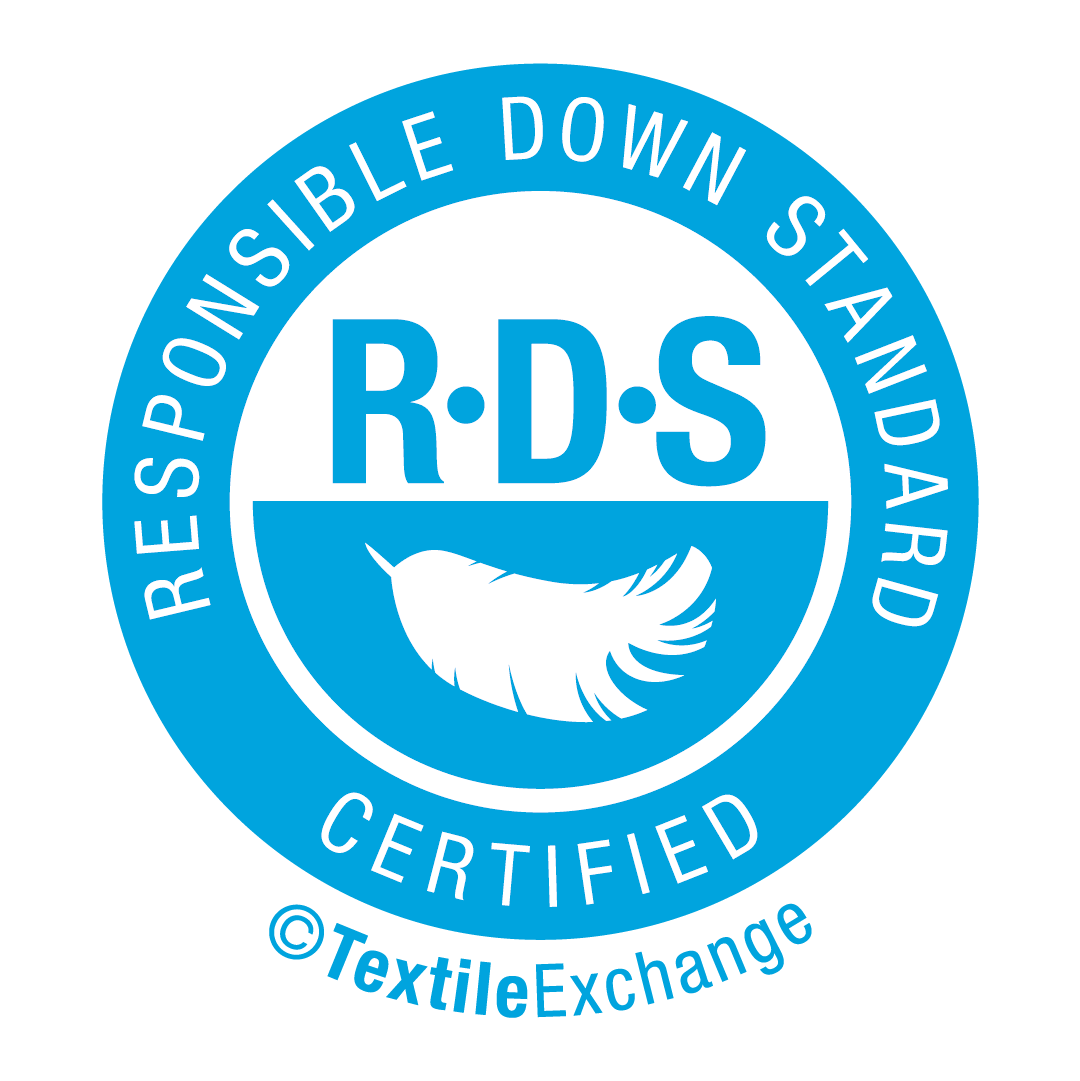
Responsible Down Standard (RDS)
The Responsible Down Standard (RDS) is an international, voluntary standard that addresses animal welfare in the duck and geese supply chain and the "Chain of Custody" of down and feather material from certified farms to the final product.
Individual sites are certified by independent, third-party certification bodies using annual audits. Material is tracked from the farm to the final product using Transaction Certificates (TC).
The Responsible Alpaca Standard (RAS)
The Responsible Alpaca Standard (RAS) is a voluntary standard that requires all sites, from alpaca farms through to the seller in the final business-to-business transaction, to be certified. RAS farmers and ranchers must meet "Animal Welfare, Land Management, and Social Requirements".
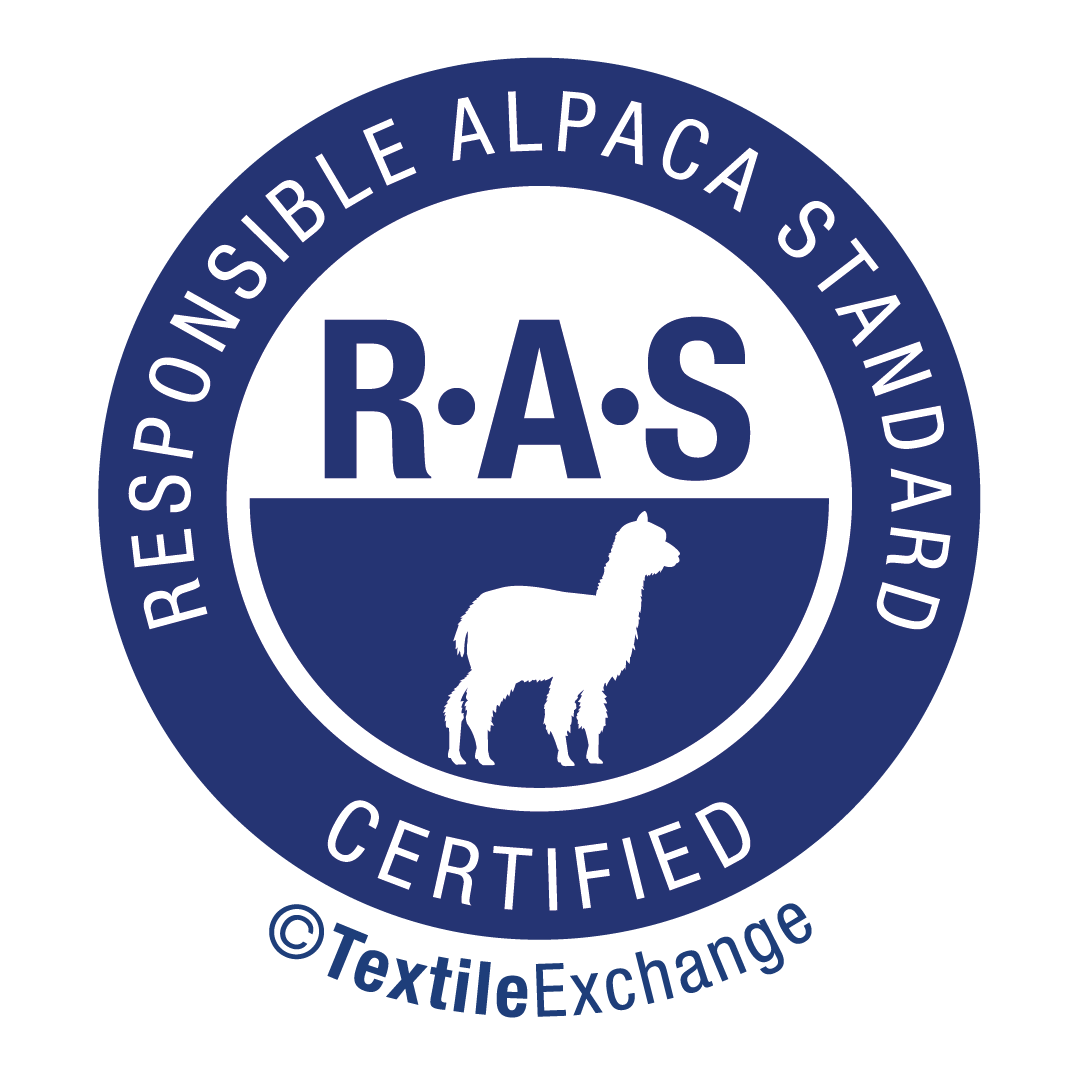
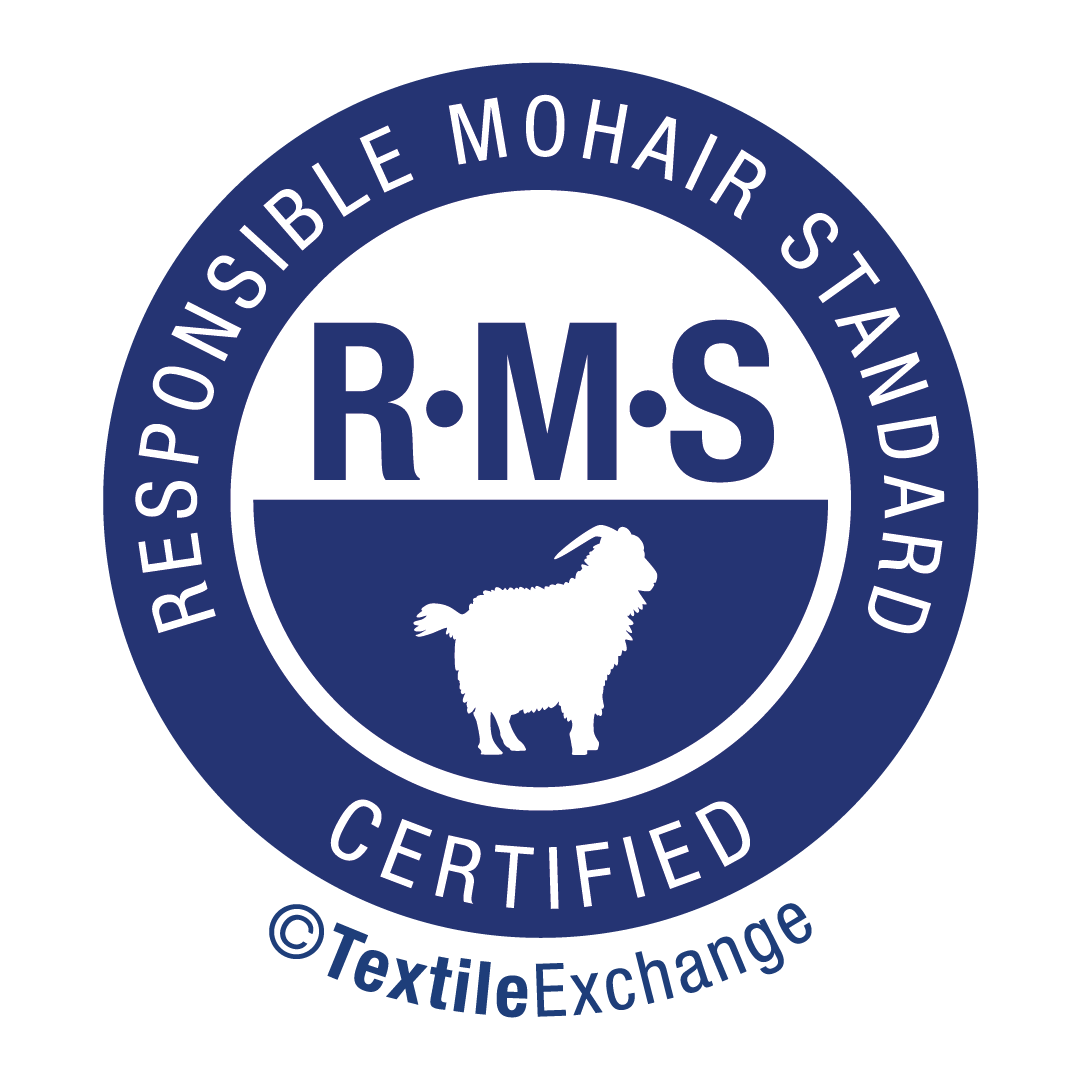
The Responsible Mohair Standard (RMS)
The Responsible Mohair Standard (RMS) is a voluntary standard that requires all sites, from farms through to the seller in the final business-to-business transaction, to be certified. RMS farmers and ranchers must meet "Animal Welfare, Land Management, and Social Requirements".
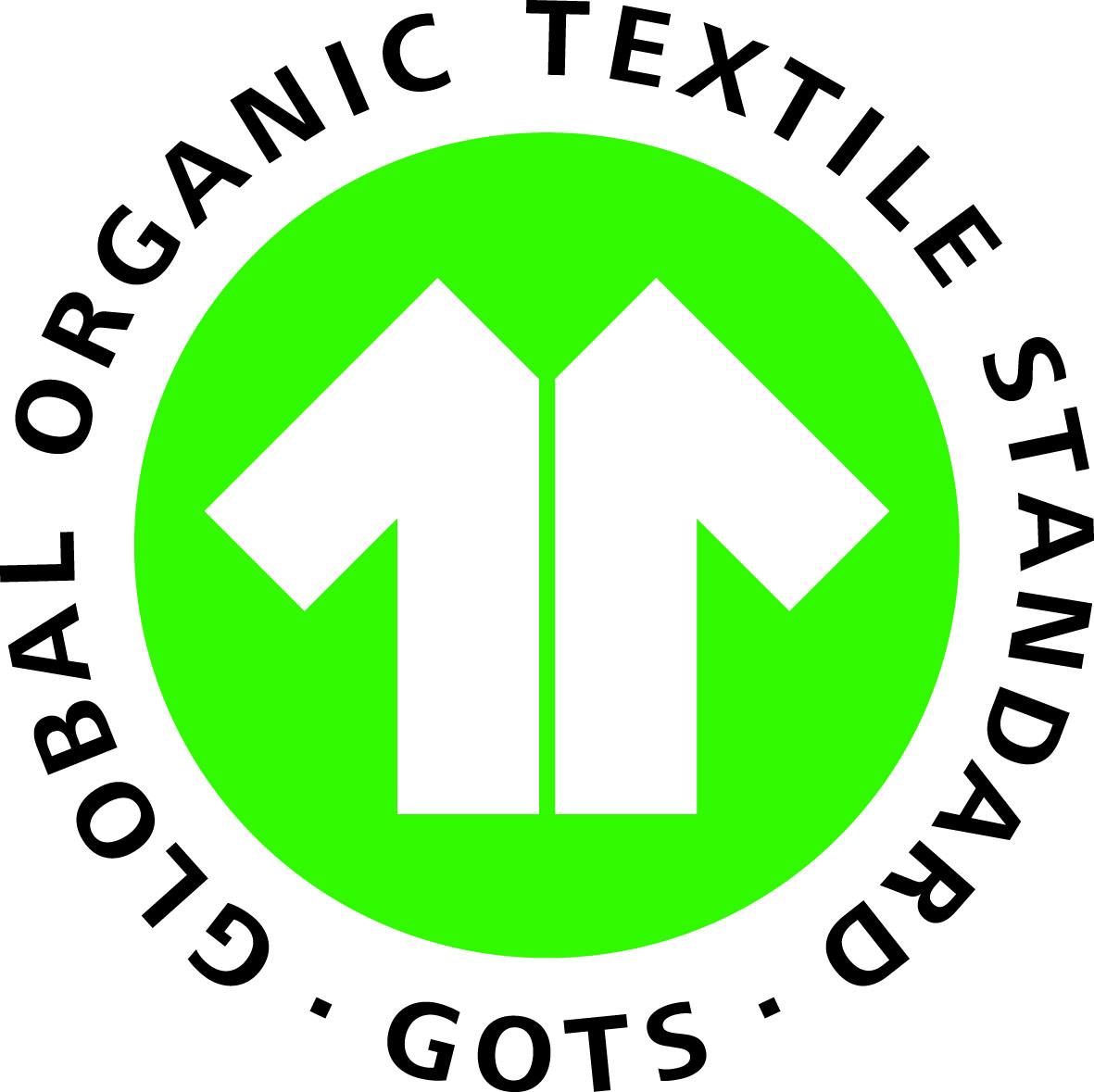
Global Organic Textile Standard (GOTS)
The Global Organic Textile Standard (GOTS) is an international, transparent, and voluntary standard that addresses the four distinctive and unique features of textile production, Organic Fibres, Ecological and Social Criteria, All Processing Stage, and Third-Party Certification.
GOTS is the world’s leading organic textile processing standard, including Ecological and Social Standards and Independent Certification of the full textile supply chain.
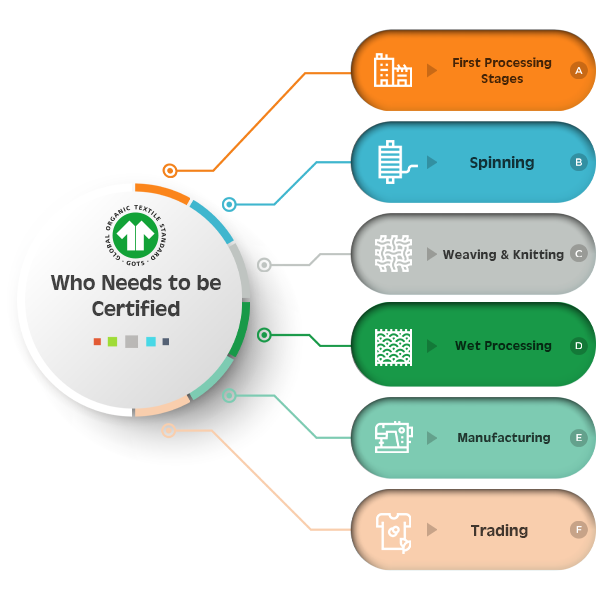
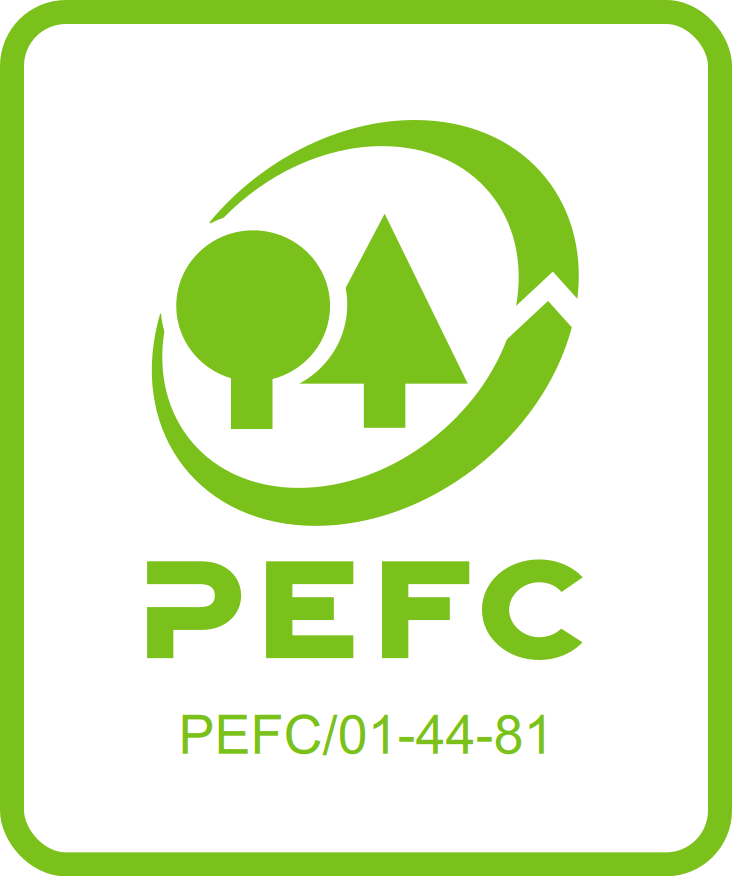
Programme for the Endorsement of Forest Certification
PEFC, which stands for Programme for the Endorsement of Forest Certification, is an international non-profit organization that promotes sustainable forest management and the responsible sourcing of wood and paper products. PEFC sets standards for forest certification, ensuring that forests are managed In an environmentally and socially responsible manner. Companies that meet these standards can obtain PEFC certification for their products, which assures consumers that the wood or paper comes from sustainably managed sources.
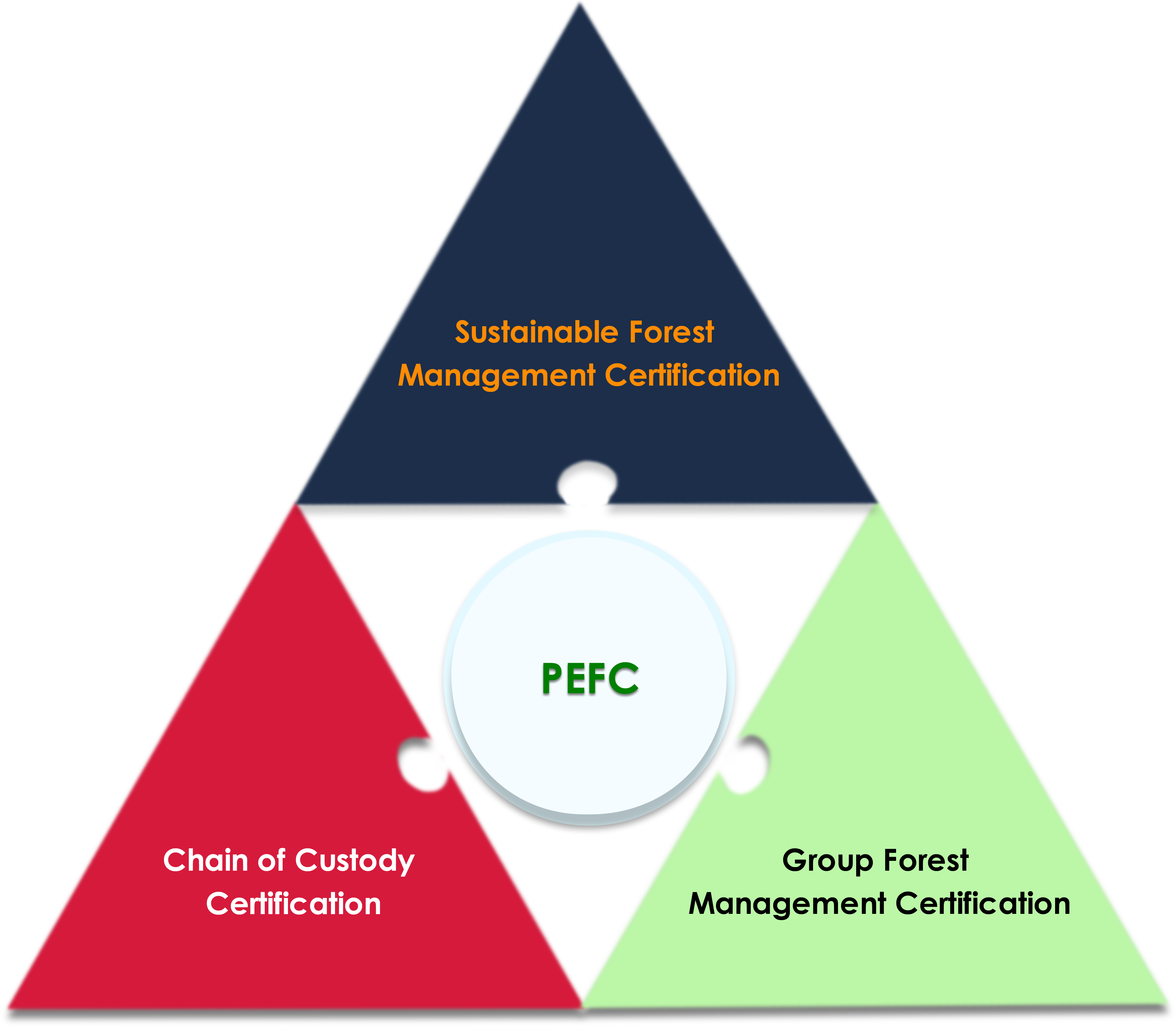
Ocean Bound Plastic Certification
Ocean Bound Plastic (OBP) refers to abandoned plastic waste, including microplastics, mezzo-plastics, and macro-plastics, found within 50km of shores where waste management is lacking. The OBP Certification Program is designed to encourage the removal of Ocean Bound Plastic from the environment by adding value in effectively collecting and treating it before it reaches the ocean. GSCS International Ltd serves as a leading certification body for Ocean Bound plastic Certification, ensuring rigorous standards and verification processes are in place to combat marine pollution.
